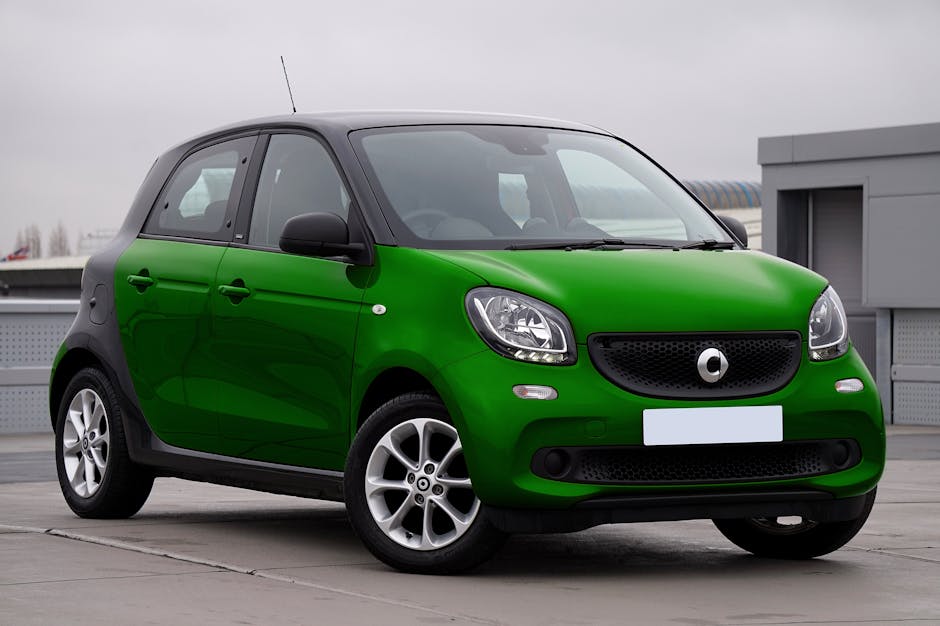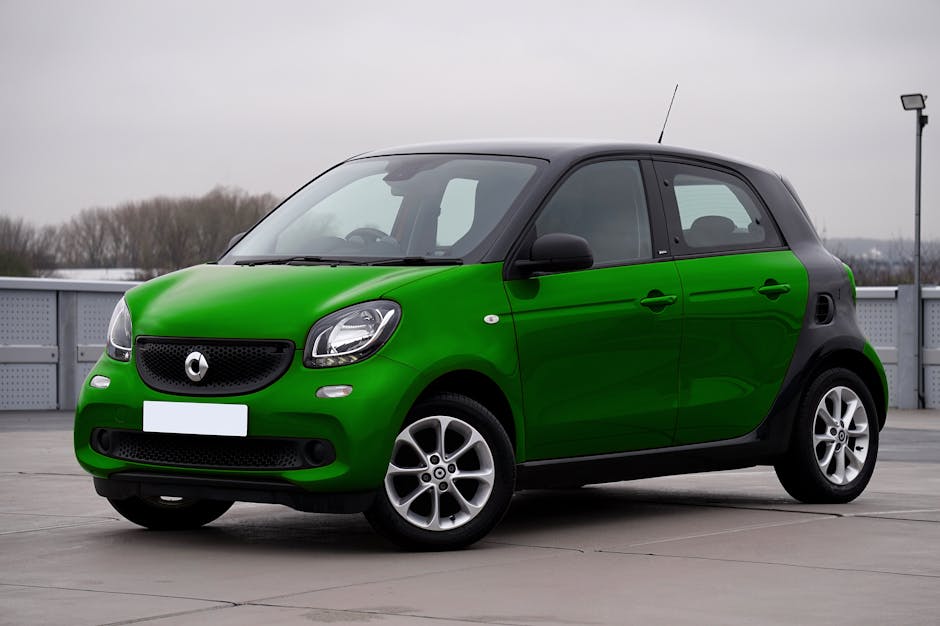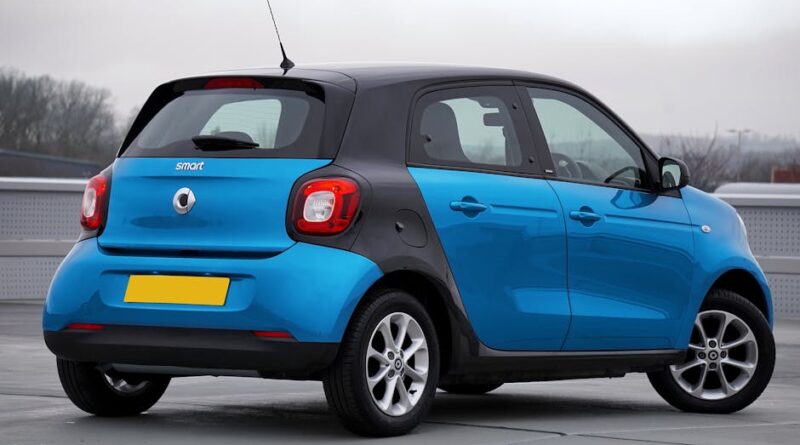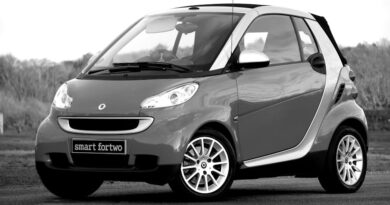Unlocking the Future of Parking: A Deep Dive into Smart Parking Systems
In a world where technology continues to revolutionize our daily lives, it comes as no surprise that even something as mundane as parking is being transformed by smart innovations. Smart parking systems are paving the way for a more efficient, convenient, and sustainable urban experience. But what exactly are smart parking systems, and how do they work? Join us on a journey to explore the ins and outs of this cutting-edge technology and discover how it is reshaping the way we park our vehicles.
The Evolution of Parking

It’s no secret that finding a parking spot in a bustling city can be a daunting task. The traditional approach to parking, characterized by manual ticketing systems and limited visibility into available spaces, often leads to congestion, frustration, and wasted time. Smart parking systems aim to address these challenges by leveraging technology to optimize the parking experience.
Smart parking systems utilize a combination of sensors, real-time data analytics, and mobile applications to provide drivers with valuable information about parking availability, pricing, and navigation. By digitizing the parking process, these systems help drivers locate vacant spots more efficiently, reduce traffic congestion, and ultimately enhance the overall urban mobility ecosystem.
The Mechanics of Smart Parking Systems

At the core of smart parking systems are sensors that are strategically placed in parking spaces to detect the presence of vehicles. These sensors can be embedded in the ground, mounted on walls, or integrated into parking meters. When a vehicle occupies a spot, the sensor sends a signal to a central server, which then updates the parking availability status in real-time.
Drivers can access this information through mobile applications or electronic signage, allowing them to identify nearby parking options and make informed decisions. Some smart parking systems even offer reservation capabilities, enabling drivers to secure a spot in advance and avoid the hassle of circling around in search of parking.
Moreover, smart parking systems can incorporate payment processing functionalities, allowing drivers to pay for their parking electronically through the app or through automated kiosks. This seamless integration of parking availability, navigation, and payment streamlines the parking experience and enhances user satisfaction.
The Benefits of Smart Parking Systems

Smart parking systems offer a wide range of benefits to both drivers and city authorities. For drivers, these systems provide a hassle-free parking experience, saving time and reducing stress associated with finding parking in congested areas. By guiding drivers to available spots and facilitating electronic payments, smart parking systems enhance convenience and efficiency.
From a city planning perspective, smart parking systems contribute to the optimization of urban infrastructure and transportation networks. By reducing traffic congestion, minimizing emissions, and maximizing the utilization of parking spaces, these systems help cities create more sustainable and livable environments. Additionally, the data generated by smart parking systems can offer valuable insights for urban planners to make informed decisions about parking policies and infrastructure development.
Case Studies: Real-World Applications of Smart Parking Systems

Several cities around the world have already embraced smart parking systems and witnessed tangible benefits. One notable example is San Francisco, which implemented a smart parking program that uses sensors to monitor parking availability and adjust pricing dynamically based on demand. This initiative has successfully reduced traffic congestion, improved parking turnover, and generated additional revenue for the city.
In Europe, Barcelona has deployed a smart parking system that leverages sensors, mobile apps, and data analytics to optimize parking operations. By providing drivers with real-time information on parking availability and pricing, Barcelona has been able to enhance the parking experience for residents and tourists alike, while also promoting sustainable transportation practices.
The Future of Parking: Innovations and Trends
As technology continues to advance, the future of parking holds even more exciting possibilities. The integration of artificial intelligence, machine learning, and Internet of Things (IoT) technologies is poised to revolutionize smart parking systems further. These advancements will enable predictive analytics, automated parking management, and seamless integration with other smart city initiatives.
Moreover, the concept of connected and autonomous vehicles presents new opportunities for smart parking systems. By enabling vehicles to communicate with parking infrastructure and autonomously navigate to available spots, smart parking systems can enhance the efficiency and safety of urban transportation. This convergence of smart parking and autonomous vehicles is set to redefine the parking landscape in the coming years.
Challenges and Controversies
While smart parking systems offer a plethora of benefits, they also face certain challenges and controversies. Privacy concerns related to the collection and storage of parking data have raised questions about data security and surveillance. Additionally, the cost of implementing smart parking systems, especially for smaller municipalities, can be a barrier to adoption.
Furthermore, the reliance on technology in parking management raises issues of equity and accessibility. Not all drivers have access to smartphones or the digital literacy required to use smart parking apps effectively. Ensuring that smart parking systems are inclusive and accessible to all members of the community is a crucial consideration for city planners and policymakers.
Common Misconceptions about Smart Parking Systems
One common misconception about smart parking systems is that they are prohibitively expensive and complex to implement. While there are upfront costs associated with deploying sensors and infrastructure, the long-term benefits in terms of efficiency, revenue generation, and sustainability often outweigh the initial investment.
Another misconception is that smart parking systems are only beneficial for drivers. In reality, these systems offer a host of advantages for city authorities, including improved traffic management, optimized parking utilization, and data-driven decision-making. By viewing smart parking systems as a win-win solution for both drivers and cities, we can better appreciate their transformative potential.
FAQs about Smart Parking Systems
1. Are smart parking systems secure?
Smart parking systems employ encryption and data security measures to protect user information and ensure privacy. By following best practices in cybersecurity, smart parking providers can safeguard sensitive data and mitigate risks.
2. How do smart parking systems benefit city planning?
Smart parking systems offer valuable data insights that can inform urban planning decisions, optimize transportation networks, and promote sustainable development. By leveraging real-time parking data, cities can improve traffic flow, reduce emissions, and enhance the overall quality of urban life.
3. Are smart parking systems environmentally friendly?
Yes, smart parking systems contribute to environmental sustainability by reducing traffic congestion, minimizing emissions, and promoting efficient parking utilization. By encouraging the use of public transportation, cycling, and walking, smart parking systems help cities mitigate the environmental impact of private vehicle usage.
Conclusion
To wrap things up, smart parking systems represent a transformative solution to the age-old challenge of parking in urban areas. By harnessing the power of technology, these systems offer a seamless, efficient, and sustainable parking experience for drivers while empowering city authorities with valuable data insights for urban planning.
As we look to the future, the convergence of smart parking systems with emerging technologies such as AI, IoT, and autonomous vehicles holds the promise of even greater innovation and efficiency. By addressing challenges related to privacy, equity, and accessibility, smart parking systems can truly revolutionize the way we think about parking and urban mobility.
So, the next time you find yourself circling the block in search of a parking spot, remember that the future of parking is smart, connected, and full of possibilities. Embrace the evolution of parking, and embark on a journey towards a more efficient and sustainable urban future.




